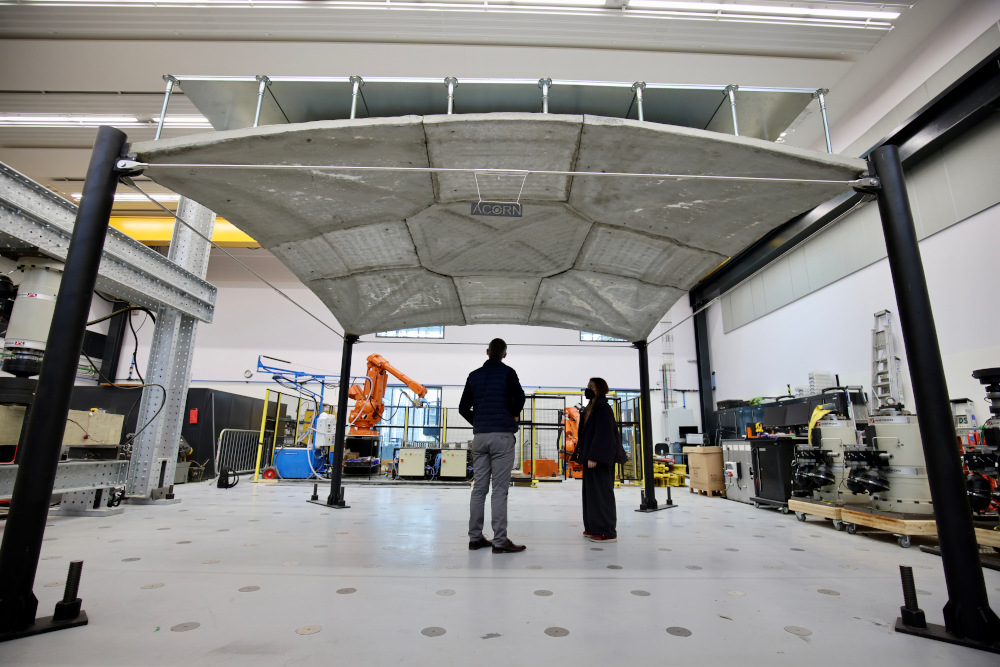
Séminaire MSA – Robin Oval
- Post by: jeremy.bleyer
- 7 mars 2022
- No Comment
Le prochain séminaire MSA aura lieu mercredi 16 mars à 12h30 en salle P012. Robin Oval actuellement en postdoctorat à Cambridge, nous présentera ses travaux intitulés
The OAK | Prototype of a concrete shell as building floor for circular sustainable construction
Abstract
The construction industry is responsible for nearly half of the carbon emissions of the UK, while cement accounts for about 7% of the greenhouse emissions worldwide, due to the popularity of concrete and its industrial application driven by productivity instead of sustainability. Particularly, building floors represent around 60% of the mass of a building, with an impact on the rest of the building and its fondations and represent a great potential for saving if we design floors as thin shells that work in compression, the natural behaviour of concrete, instead of reinforced thick plates that work in bending.
Concrete shell structures offer a structurally efficient solution as floor system to reduce the environmental impact of our buildings. Although the curved geometry of shells can be an obstacle to their fabrication and their utilisation, digital fabrication and affordable robotics provide a path for the automation of their construction in a sustainable manner at an industrial scale.
The applicability of this structural system is demonstrated with the realisation of a concrete shell floor system with a footprint of 20m2, completed by columns, tie rods and a levelled floor. The shell is prefabricated off-site in segments that are transported and assembled on-site, which can be disassembled at the end-of-life of the building to enable circular construction and increase the lifespan of our structures.
This talk presents the conceptual and structural design of the system and prototype informed by architectural, engineering, and construction requirements; the automation of its fabrication, thanks to an actuated, reconfigurable, reusable mould and a robotic concrete spraying process; the strategy and sequence for its lightweight assembly and disassembly on-site using standard scaffold elements; and the assessment of its performance, on a structural level thanks to a load test, and on a sustainability level thanks to a life-cycle analysis.
ACORN is funded by UKRI through the ISCF Transforming Construction programme and is a collaboration between the Universities of Bath, Cambridge, and Dundee (https://automated.construction/).

